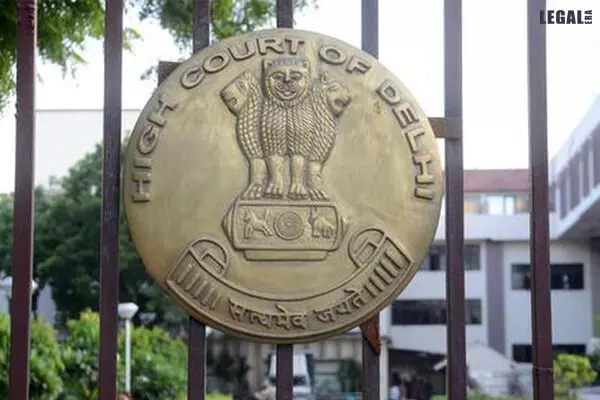- Home
- News
- Articles+
- Aerospace
- Artificial Intelligence
- Agriculture
- Alternate Dispute Resolution
- Arbitration & Mediation
- Banking and Finance
- Bankruptcy
- Book Review
- Bribery & Corruption
- Commercial Litigation
- Competition Law
- Conference Reports
- Consumer Products
- Contract
- Corporate Governance
- Corporate Law
- Covid-19
- Cryptocurrency
- Cybersecurity
- Data Protection
- Defence
- Digital Economy
- E-commerce
- Employment Law
- Energy and Natural Resources
- Entertainment and Sports Law
- Environmental Law
- Environmental, Social, and Governance
- Foreign Direct Investment
- Food and Beverage
- Gaming
- Health Care
- IBC Diaries
- In Focus
- Inclusion & Diversity
- Insurance Law
- Intellectual Property
- International Law
- IP & Tech Era
- Know the Law
- Labour Laws
- Law & Policy and Regulation
- Litigation
- Litigation Funding
- Manufacturing
- Mergers & Acquisitions
- NFTs
- Privacy
- Private Equity
- Project Finance
- Real Estate
- Risk and Compliance
- Student Corner
- Take On Board
- Tax
- Technology Media and Telecom
- Tributes
- Viewpoint
- Zoom In
- Law Firms
- In-House
- Rankings
- E-Magazine
- Legal Era TV
- Events
- Middle East
- Africa
- News
- Articles
- Aerospace
- Artificial Intelligence
- Agriculture
- Alternate Dispute Resolution
- Arbitration & Mediation
- Banking and Finance
- Bankruptcy
- Book Review
- Bribery & Corruption
- Commercial Litigation
- Competition Law
- Conference Reports
- Consumer Products
- Contract
- Corporate Governance
- Corporate Law
- Covid-19
- Cryptocurrency
- Cybersecurity
- Data Protection
- Defence
- Digital Economy
- E-commerce
- Employment Law
- Energy and Natural Resources
- Entertainment and Sports Law
- Environmental Law
- Environmental, Social, and Governance
- Foreign Direct Investment
- Food and Beverage
- Gaming
- Health Care
- IBC Diaries
- In Focus
- Inclusion & Diversity
- Insurance Law
- Intellectual Property
- International Law
- IP & Tech Era
- Know the Law
- Labour Laws
- Law & Policy and Regulation
- Litigation
- Litigation Funding
- Manufacturing
- Mergers & Acquisitions
- NFTs
- Privacy
- Private Equity
- Project Finance
- Real Estate
- Risk and Compliance
- Student Corner
- Take On Board
- Tax
- Technology Media and Telecom
- Tributes
- Viewpoint
- Zoom In
- Law Firms
- In-House
- Rankings
- E-Magazine
- Legal Era TV
- Events
- Middle East
- Africa
Delhi High Court rules against duty drawback to exporters in absence of sale proceedings

Delhi High Court rules against duty drawback to exporters in absence of sale proceedings
The Directorate of Revenue Intelligence discovered that the petitioner was part of a syndicate involved in fraudulent and unlawful practices
The Delhi High Court has held that duty drawback to the exporter is not allowable in the absence of sale proceedings.
The respondent issued the impugned communication to IndusInd Bank Limited (petitioner), the banker of RK Overseas, preventing the bank from making any debit entries in the account maintained with it. Also, no outward transactions would be permitted in the account until further communication.
The petitioner assailed the communication on the ground that it was issued without the authority of the law.
Based on the intelligence developed by the Directorate of Revenue Intelligence (DRI), Mumbai, it surfaced that the petitioner was part of a syndicate, involved in fraudulent and unlawful availment of duty drawback by taking recourse to bogus dummy Importer Exporter Codes (IECs).
A perusal of the communication showed that it only prevented the outward flow of money by prohibiting the bank from making a debit entry in the petitioner's account. But there was no bar on the petitioner's banker from 'receiving' remittances from the foreign buyers.
Under the Foreign Exchange Management Act (FEMA), 1999, the provision for grant of duty drawback is embedded. It is founded on the fact that the sale proceeds are received by or on behalf of the exporter within the time frame allowed under the Act. Else, is deemed to never have been allowed, save and except in such circumstances or conditions as provided in the rules framed by the Government of India.
The bench comprising Justice Rajiv Shakdher and Justice Tara Vitasta Ganju observed that the duty drawback was paid to the exporter, but the sale proceeds were not received against the exports. Therefore, the provision where the duty drawback is deemed never to have been allowed is applicable.
The court allowed the petitioner to operate the impugned bank account, as there was no legal impediment, given the fact that the provisional attachment orders issued to make course correction outlived their legal efficacy.
The judges held, "In case the petitioner can obtain sale proceeds against the subject exports, it will have the liberty to approach the concerned authority for release of duty drawback, finally or provisionally. In the event, the adjudication qua the petitioner is not over within the indicated timeframe. If approached, the concerned authority will take a decision vis-à-vis such request, as per the law."



